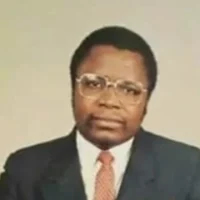Malaysia has a long history of racial tension, dating back to the influx of Chinese workers in the 19th century, and which was exacerbated after Malaya gained independence from the UK in 1957. Constant tension simmered between the native Malay population and the more economically powerful Chinese population, which erupted into violence after the election… Read More "A Black Day in May for Malaysia"
Combining Forces to Counter Terrorism — The Birth of S/CT
U.S. inter-agency coordination on countering terrorism was limited, for bureaucratic and technical reasons, prior to the mid-1980s. As hijackings and terrorist assaults against U.S. military personnel became more frequent after the Vietnam War, Washington responded in part by creating the position of Coordinator for Counterterrorism in the State Department (S/CT). However, the position was not given… Read More "Combining Forces to Counter Terrorism — The Birth of S/CT"
Billion-Dollar “Plan Colombia” to End Decades of Civil War
Published January 2016 A guerrilla organization known as the Revolutionary Armed Forces of Colombia – People’s Army (Fuerzas Armadas Revolucionarias de Colombia—Ejército del Pueblo, FARC–EP and FARC) has been at war with the Colombian government since 1964, marking it as the hemisphere’s longest-running armed conflict. The FARC has claimed to be a Marxist-Leninist army representing… Read More "Billion-Dollar “Plan Colombia” to End Decades of Civil War"
Leveling the Playing Field in the Salvadoran Civil War
The Salvadoran Civil War, lasting from 1979-1992, pitted the military-led government of El Salvador against a coalition of five left-wing guerrilla groups known collectively as the Farabundo Marti National Liberation Front (FMLN). Combat was vicious and fought by both the government and guerrilla forces without regard for human rights. More than 75,000 Salvadorans lost their lives and an… Read More "Leveling the Playing Field in the Salvadoran Civil War"
Survivor of Two Concentration Camps, U.S. Ambassador to Three Countries
Robert Gerhard Neumann (1916–1999), seen at right with wife Marlen, served as U.S. Ambassador to Afghanistan, Morocco, and Saudi Arabia. Born in Vienna, Austria, he belonged to political activist groups as a student. While studying in Geneva, he was arrested by the Nazis and imprisoned for almost a year, spending part of that time in… Read More "Survivor of Two Concentration Camps, U.S. Ambassador to Three Countries"
Burundi: With Independence Came Genocide
Coordinated attacks in Burundi in recent years left hundreds dead and forced thousands to flee the country. The State Department advised Americans to depart and drew down the embassy in response to the escalation in violence amid concern that the small African nation could again be on the brink of civil war. Internal conflicts have pitted… Read More "Burundi: With Independence Came Genocide"
Liberia erupted in violence on April 12, 1980 as Master Sergeant Samuel Kanyon Doe seized power from President William Tolbert, ending 133 years of political dominance by Americo-Liberians. Americo-Liberians traced their ancestry to African Americans and Black British subjects who immigrated to Africa and became the founders of the Republic of Liberia, in power from 1847-1980. In October… Read More "Surviving the Coup that Transformed Liberia"
Pablo Escobar and the Siege of Colombia’s Palace of Justice
Colombian drug lord Pablo Escobar, the wealthiest criminal in history once responsible for 80 percent of the cocaine entering the U.S., was also believed to be the force behind the siege on Colombia’s Supreme Court on November 6, 1985. The assault marks one of the deadliest conflicts between the Colombian government and revolutionary groups. By… Read More "Pablo Escobar and the Siege of Colombia’s Palace of Justice"
Indira Gandhi’s Assassination and the Anti-Sikh Riots, October 1984
Indira Gandhi was one of the most powerful women of the 20th Century, whose initial rise to power in 1966 was supported by those who labored under the mistaken belief that she would be a timid leader who could be easily manipulated. Quite the contrary, her tenure was marked by ruthless politics and the centralization… Read More "Indira Gandhi’s Assassination and the Anti-Sikh Riots, October 1984"
Drug-Sniffing Mongooses and Other Tales of the Sri Lankan Civil War
In July 1983, tensions increased between Tamil minority separatists and the Sinhalese majority in Sri Lanka, erupting into civil war. The Liberation Tigers of Tamil Eelam (LTTE, or the Tamil Tigers) fought to create an independent state in the northeast of the island nation. Most of the fighting took place in the north, but the… Read More "Drug-Sniffing Mongooses and Other Tales of the Sri Lankan Civil War"

